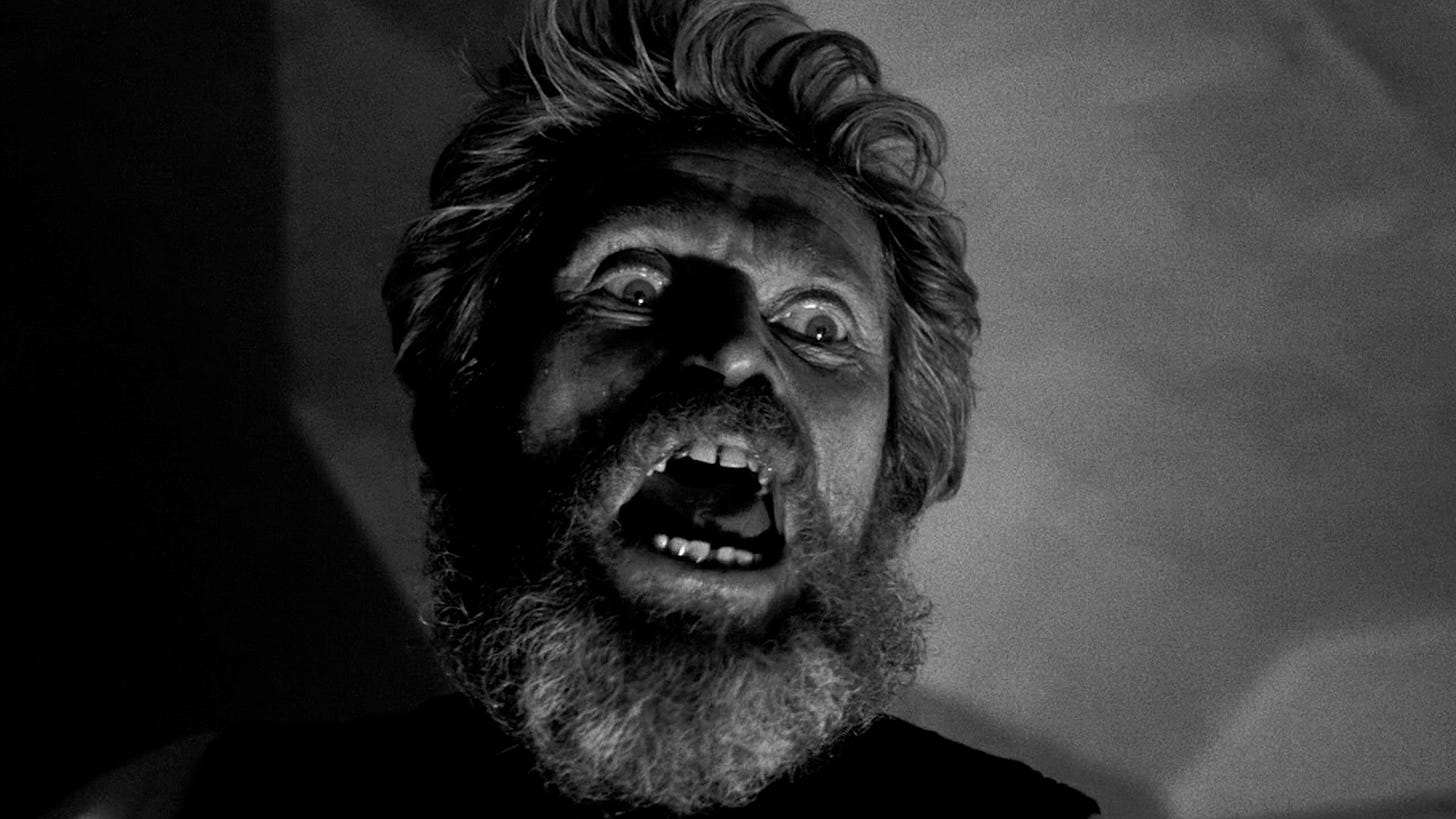Interesting Art Requires Risking Failure
Lesson's from Willem Dafoe's radical take on acting.
Willem Dafoe is one of the most unique actors working today. He’s instantly recognizable, not just as a face, but for his frequently deep commitment to
taking a role to what feels like its dramatic extreme.
I’ve been intrigued by his work for a while, not just because of the quality of the individual performances he’s given, but because he seems to bring an energy to performing in film that stands apart from a lot of the other work being done in Hollywood. He has always struck me as someone who seems to be having a lot of fun while he’s acting. Even for more seriously roles, there’s an energy, freedom, and playfulness that underlies his work.
I’ve wondered for a while, what is Dafoe doing differently? What philosophy is driving this unique and prolific career?
Then something he said in a recent interview with critic Matt Zoller Seitz caught my eye. Seitz asks Dafoe if the word “realism” means anything to him and gets this reply:
“No. When you say realism, I think of naturalism, and I think about natural acting. And when I think about natural acting, I think about natural behavior. And I think sometimes that destroys movies, you know? Because we don’t just want to see imitations of life. We want to see something that is beyond that.”
As I outline in a video from last year, what we might call “naturalism” or realism1 has slowly come to dominate acting. Most actors are using methods that have naturalism or realism as the goal, and we often judge performances by a standard of “how real” they were.
What sets Dafoe apart in many ways is that he’s not even trying to achieve the same standard of quality that is most commonly held for actors. If your understanding of quality in art is based around the assumption that what constitutes good is a very fixed objective standard, rather than something that can be pushed, stretched, or which changes with culture, then you’ll likely seem some of Dafoe’s work as a failure. For someone who sees the “gold standard” as a performance that embodies certain qualities of naturalism, then sometimes Dafoe is hitting the mark, and sometimes he’s dramatically missing.
But what if that wasn’t the standard by which we measured a performance? It’s certainly not the standard by which Dafoe is measuring his own work. In an interview with Sam Jones for Off Camera, Dafoe talks about the freedom he gives himself to fail:
“Try to act badly, try to be lousy in that scene. It’s interesting… You’ve got to find ways to let [yourself] not worry and be free, that’s all.”
To be clear I don’t think Dafoe is ever trying to give a bad performance. But I think he’s freed himself from striving for perfection, or an arbitrary standard of performance set by consensus.
Within this freedom, he’s interested in finding the territory of the new, and interesting. He’s interested in work that doesn’t strive to recreate reality, but instead to go somewhere else. He often takes a performance to a place that we might not expect, even if it risks creating a performance that isn't going to land for everyone. It’s this freedom combined with his pursuit of what lies beyond naturalism that makes him one of the most interesting actors working today.
I’ll be exploring Dafoe’s work and influences in more detail in my upcoming video, which will be out on YouTube next week. It’s available now on Nebula, Patreon, or down below for paid subscribers.
Keep reading with a 7-day free trial
Subscribe to Seeing Through Film - Thomas Flight to keep reading this post and get 7 days of free access to the full post archives.


